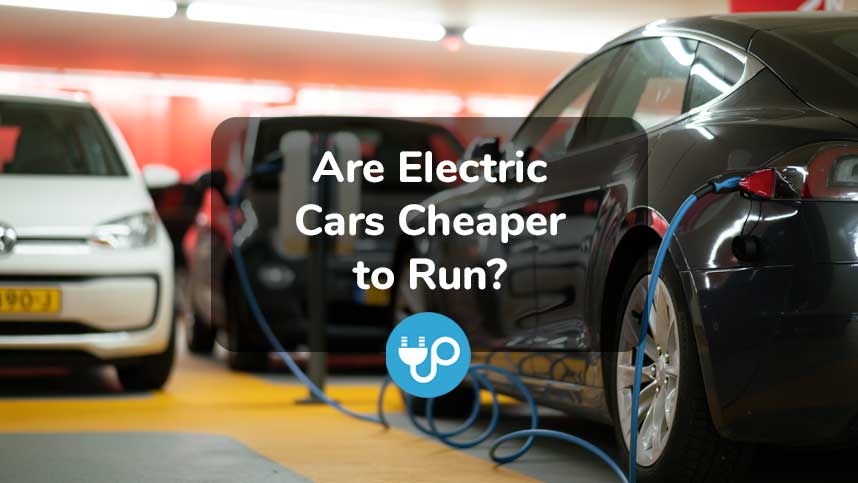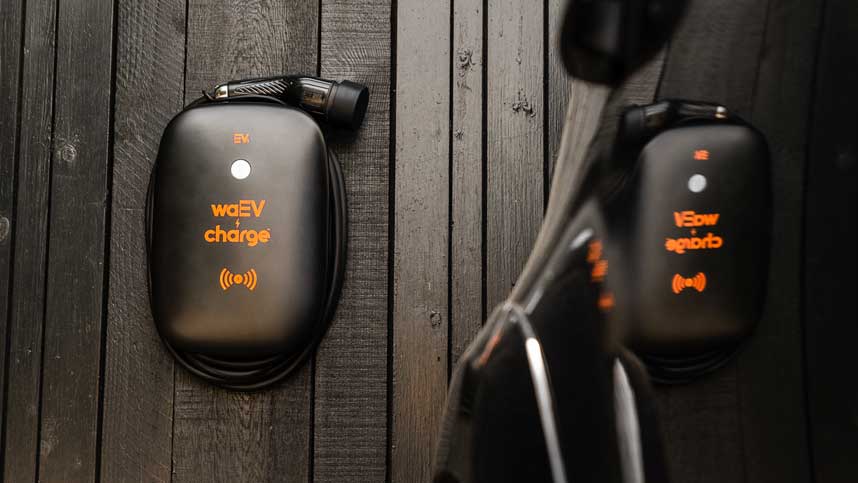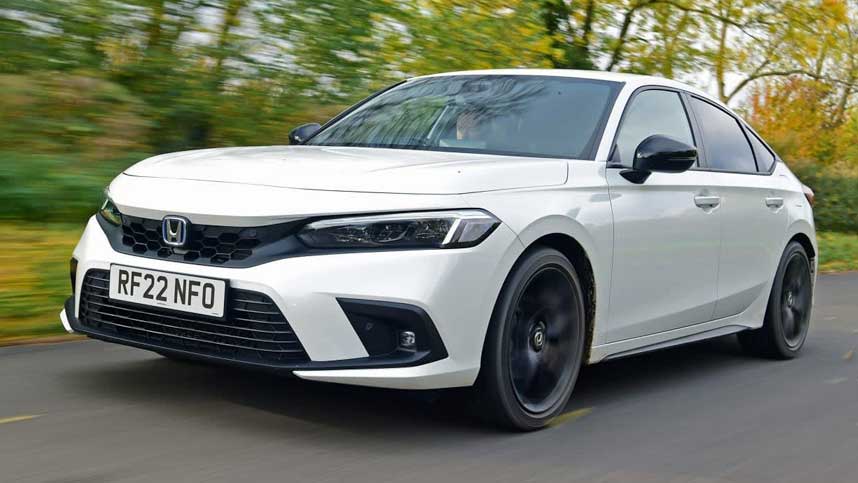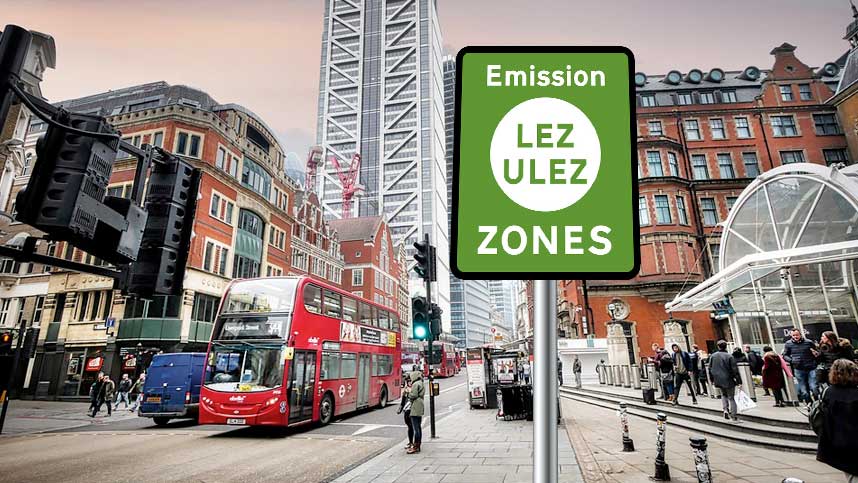
Are Electric Cars Cheaper to Run?
Whilst initially it may be more expensive to purchase an electric vehicle, longer term running costs will make it a much more cost effective option.
Indeed, the demand for electric vehicles is on the rise as more people are realising this.
Having said that, it’s best to take into account a number of factors such as whether the current cost of energy crisis may affect charging costs over time.
So to answer whether electric cars are cheaper to run, there’s several factors to take into account that we outline below.
ICE vs EV - Which is Cheaper to Buy?
Currently it’s cheaper to buy a petroleum-powered internal combustion engined vehicle than an electric vehicle (EV).
However, this is set to change over time, especially when it comes to used vehicles.
Since electric models are still relatively new and are not as widely available as traditional petrol and diesel engined vehicles, it goes without saying that their prices are still comparatively higher.
However, buying a used petrol or diesel car ends up being more expensive in the long run because running costs are much higher than EV’s that require less maintenance.
Switching to Electric - Pros & Cons
Like many motorists, switching to electric may be something you’ve been pondering when it comes to purchasing your next car.
In recent times, more people are making the switch as the advantages of electric vehicles become clearer.
The following are some pros and cons you may wish to consider:
Pros of EVs
- EVs are cheaper to run, both with regards to charging costs as well as regular maintenance.
- Off-peak charging times help make charging costs more affordable.
- Using public charge-points can sometimes further reduce charging costs.
- EV’s benefit from paying zero road tax fees.
- Some government grants are available to purchase a new EV and install a home charger.
Cons of EVs
- Insurance costs may be higher
- Upfront costs are generally higher
- With the cost of living and energy crisis ongoing, one can only hope that overall charging costs do not increase substantially over time.
How Much Does a Home EV Charge-Point Installation Cost?
One of the most important considerations of switching to an EV is the cost of installing a charging point at home.
The initial cost to do this is quite high, but there are some government grants which can help reduce the expense.
Fitting a charging point at home typically costs in the region of £800 to £1500.
While you may still use a standard 3.6kW EV charger supplied with the vehicle and plug it into a regular wall socket, it’s not the ideal option.
Charging at this rate takes a considerable length of time - in many cases almost an entire day!
So despite the cost of fitting an home charge-point, most EV owners still prefer this option due to the huge convenience it offers.
Charging an EV vs Fuelling a Car Costs
The cost of charging an EV depends on a number of factors, including where you charge it and the type of charger you use.
Needless to say, if you’re planning to charge your electric car at home, this is going to have an impact on your home energy bills.
It’s therefore recommended to investigate switching to a different electricity supplier who offers more favourable tariffs that include lower overnight electricity rates.
A good example of this is Octopus Energy.
When charging an EV with a home charge-point, you can expect to pay around £15 to £20 for a full charge.
A full charge could last up to a week depending on the types of journeys you take and your driving style.
In most situations where you generally drive a short daily commute, you won’t need to charge the car that often.
In comparison to an ICE (internal combustion engined) vehicle, the price of filling up will depend on the size of the car you own and the fuel it takes.
To give you an example, in June 2022 the cost of filling an average 55 litre diesel car rose above the £100 mark!
While both oil and electricity prices are prone to fluctuations, it’s generally cheaper to charge an electric car than to fill up a fuel-powered car.
Moreover, with an electric car you can charge for free at some public charging points.
Obviously this is not something you can rely on as the location and power rating of charging points may not always be ideal.
Ultimately how much charging costs will vary depending on the amount of charging sessions you carry out, which greatly depends on the amount of travelling you do.
It will also depend on the type of charge you use, the tariff (as rates can var), and also how much you manage to use public charging.
Am I Better Off Getting a Hybrid?
Hybrid cars may seem like a good middle ground between electric cars and fuel-powered cars, but this is not necessarily the case.
Firstly, a hybrid requires two separate types of energy, thus doubling the need to refuel.
You will need to fill up the tank with petrol (gasoline) as well as charge the vehicle’s battery.
However in doing so, you will benefit from increased range since the electric motor will run at low driving speeds, whilst the combustion engine will kick in at higher speeds.
Nowadays there’s a wide range of hybrid cars to choose from, most of which offer good fuel efficiency.
While hybrids can be relatively more expensive to buy than petrol or diesel cars, the running costs over time are most likely to offset the higher initial purchasing cost.
But like all internal combustion engined vehicles, hybrids pollute so are not kind to the environment.
Do Electric Cars Save You Money?
One of the mistakes many people make is to be put off by the initial cost of buying a new electric vehicle.
While purchasing an EV might be more expensive at first, the running costs are considerably cheaper longer term.
An electric car does not need as much maintenance as a fuel-powered car as it has relatively fewer moving parts and functions that tend to require upkeep.
When it comes to charging, you can take advantage of off-peak times to save on charging costs, and in some places, there’s even places where you can charge your EV for free.
Furthermore, there are government schemes and grants you can take advantage of to reduce the cost of purchasing an electric vehicle.
It’s also worth mentioning that you will be able to save money by benefiting from reductions on road tax, congestion charges and now London’s expanded Ultra Low Emissions Zone (ULEZ).
Are Electric Cars Cheaper to Maintain?
Yes, electric cars are generally cheaper to maintain than fuel-powered cars.
For instance, there are fewer engine parts that are prone to wear and tear, and there’s no need for oil changes.
Electric cars do not have transmission (a gearbox) and consequently, there’s no extra moving parts that will need to be maintained.
In an electric vehicle there will just be the motor, the battery and the electronics, which overall are much more low maintenance.
Do Electric Cars Need Regular Servicing?
Electric cars do not need as much regular servicing as fuel-powered cars.
Electric drivetrains have a simpler set-up and fewer moving parts compared to internal combustion engines.
Hence, there’s less upkeep required.
Electric cars will evidently still require maintenance for brakes and tyres for instance, and some wear and tear is also inevitable.
Battery repair or replacement is not so common, but in rare cases may be a requirement.
As a general rule of thumb, an electric vehicle will need servicing every two years.
This will typically include a tyre pressure and wear check, along with a brake fluid change.
Do Electric Cars Need an MOT Certificate?
After the first three years you will have to MOT a brand new electric vehicle, just as you would a regular car.
However, your electric vehicle will not have to pass any emissions and noise tests for obvious reasons.
Do You Pay Road Tax for Electric Cars?
Currently electric vehicles do not have to pay any duty on road tax in the UK.
If the car has zero emissions, then it means you will benefit from zero road tax.
In the case of hybrid cars however, you still have to pay road tax.
It may be relatively cheaper than a standard diesel or petrol driven vehicle, as they produce much lower levels of emissions.
Do Electric Cars Have to Pay ULEZ Congestion Charges?
Electric vehicles are compliant with Ultra Low Emission Zones, as well as from the London Congestion Charge.
Hence an electric car is your best option if you live, work or commute in the city or have a great deal of inner-city travelling.
The ULEZ charge is quite high as most vehicles which are not exempt will have to pay a £12.50 daily charge.
So you get to save considerably if you own an electric car.
Conclusion
To conclude, it’s safe to say that EVs are likely to cost you less over the course of ownership.
This is because the cost of fully charging an EV is so much less than filling up an ICE.
Furthermore, the maintenance and upkeep of EVs is considerably less than that of traditional fuel engine vehicles.
There’s also various incentives that one can take advantage of that will reduce the initial cost outlay of purchasing an EV, as well as travel expenses and maintenance over the life of the vehicle.
Finally, if you have a home charger installed, you can take advantage of the booming sharing economy by renting out your charger to other vehicles.
The concept of peer-to-peer EV charger sharing is growing exponentially, especially since it was recently reported that over 70% of local councils do not have public charging infrastructure plans in place.
So whilst this may seem off-putting, being able to book electrified charging spots using apps like Joosup alleviates these concerns.
So for us, getting an EV is a no brainer!
Blog Archive
- Vehicle to Load (V2L): What It Is & How It Works
- 16 Top Charge Point Operators in the UK
- 8 Types of EV Battery Explained
- Where Can I Charge My Electric Car?
- Electric Car Maintenance and Servicing Guide
- How Often Should I Charge My Electric Car?
- How to Check EV Battery Health
- Do Electric Cars Pay Road Tax?
- October 2024 Budget: Key EV News
- EV vs ICE – Which is Best?
- Should I Charge My EV to 80 or 90 or 100%?
- UK Government Announces Hybrid Sales Allowed Until 2035
- BEV vs PHEV – What’s the Difference?
- Definitely Not A Guru (Jim Starling) Reviews Joosup
- How Long Do Electric Car Batteries Last?
- 25 New Electric Car Brands on UK Roads
- General Election 2024: Major Party Net Zero Policies Compared
- Electric Car Service Costs vs ICE
- CHAdeMO vs CCS – What’s the Difference?
- Mr EV Reviews Joosup





